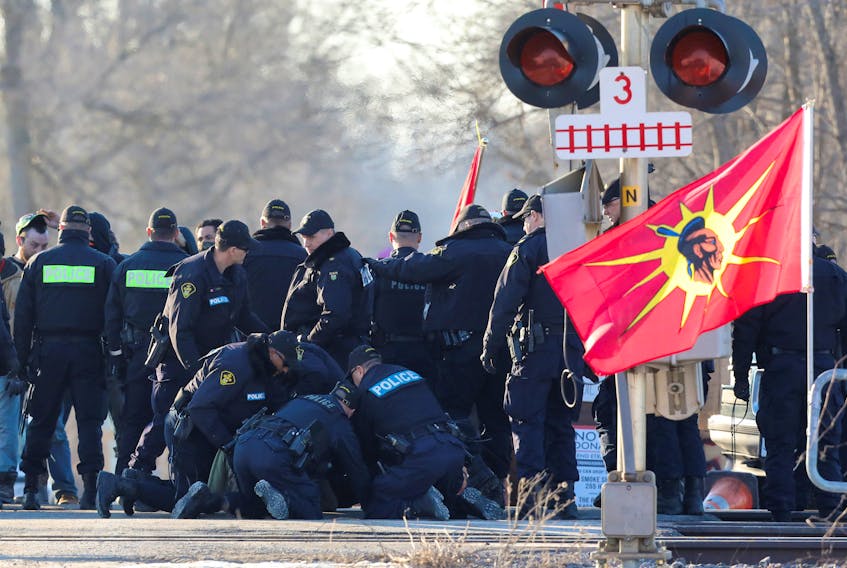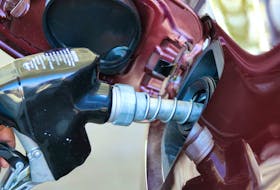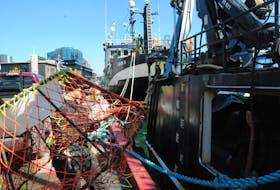Ian Fairclough
The Chronicle Herald
@iancfairclough
Thom Oulton says he believes in democracy.
“But I believe in the welfare and well-being of my chickens more,” the Kings County chicken farmer said Friday.
Oulton, board chair of the Chicken Farmers of Nova Scotia, said farmers are getting increasingly worried by the continuing rail service disruptions affecting delivery of propane and feed to Nova Scotia farmers.
“Not knowing if you will have heat for your chickens past the next 48 hours is a stress that self-reliant chicken farmers are not used to facing,” he said. “Is it reaching a tipping point? Yes, it is getting very close for small- and medium-sized farms to be able to provide for our chickens.”
He said the organization is hearing from a a number of farms that are running into issues with the propane supply and an increase in the price of the fuel by eight cents a litre.
Feed delivered by rail has also seen a price jump, from $311 to $358 a tonne.
Most farmers have reserves of propane and feed, but those are getting low.
“Larger farms can typically have more reserves, so it’s really the mid-sized and small farmers that are being hit the hardest,” said Oulton, whose chicken operation is outside Port Williams.
He said he hasn’t heard from farmers in the province that a loss of chickens because of a lack of propane or food is imminent, but with reserves being depleted “the backup in the supply is going to become a much larger issue in the coming days.”
Much also depends on the individual farm’s situation and the age of birds, Oulton said. Younger chicks need barns to be heated to 32 C.
“That’s going to burn a lot of (propane),” he said.
He said propane suppliers are rationing the fuel and keeping in touch with farmers to see what their needs are.
Chris van den Heuvel, who is second vice-president of the Canadian Federation of Agriculture, has a mixed beef and dairy farm in Port Hood. He said that at meetings this week there was concern for the chicken, beef and dairy industries.
“If we're just talking eastern Canada, the biggest issues are propane shortages,” he said.
“It's not a good situation to be in when you have tens of thousands of birds in a flock in a barn that are relying on that propane for heat,” he said. “It's definitely a big concern. A lot of people don't connect the dots and realize this is an animal welfare issue.”
He said dairy and beef farmers rely on most of the raw materials for feed mills to come from out west and get processed here.
“I know some of the mills have been sending out letters to say to expect rationing, and in some cases price increases if they have to start bringing in their raw materials by truck,” he said. “And that's just if they can. There isn't near enough trucking capacity to start to backfill the railway hauling.”
Van den Heuve said feed reserves for many farmers on the east coast are already low because of the poor growing season this year followed by damage from hurricane Dorian.
“It was a devastating 2019 right from the get-go, and it was two years back-to-back poor forage seasons,” he said. “Forage reserves were really, really low coming into this, and you had the rail strike last fall, which further depleted those reserves, and then you come right into this with the railway blockade. It's a big issue that's putting a lot of mental and financial stress on the farmers.”
He said the federation is encouraged that the federal and B.C. government and Wet'suwet'en hereditary chiefs have been at the negotiating table for two days.
“At the end of the day, what (farmers) want is to keep our animals healthy, keep them warm, keep them fed and get our product to market before there is anything drastic like food shortages.”
He said while beef farmers can, and in some case have, put more of their animals to market to deal with feed shortages at their farms, chicken farmers don't have that option if their birds are not grown.









